On the afternoon of June 21, 2025, the School of Society and Humanities at Jiangxi University of Finance and Economics held a special academic lecture in Classroom Y506 of the Yinglu Building. Lin Huifang, the Programme Director of Hong Kong University School of Professional and Continuing Education (HKU SPACE) and Vice President & Secretary-General of the China Education and Cultural Exchange Foundation, was invited as the keynote speaker. The lecture, themed "Hong Kong Youth Development and Community Governance," was chaired by Prof. Hong Lumin, Vice Dean of the School, with participation from undergraduate students majoring in Social Work, as well as graduate students in Sociology and Social Work.
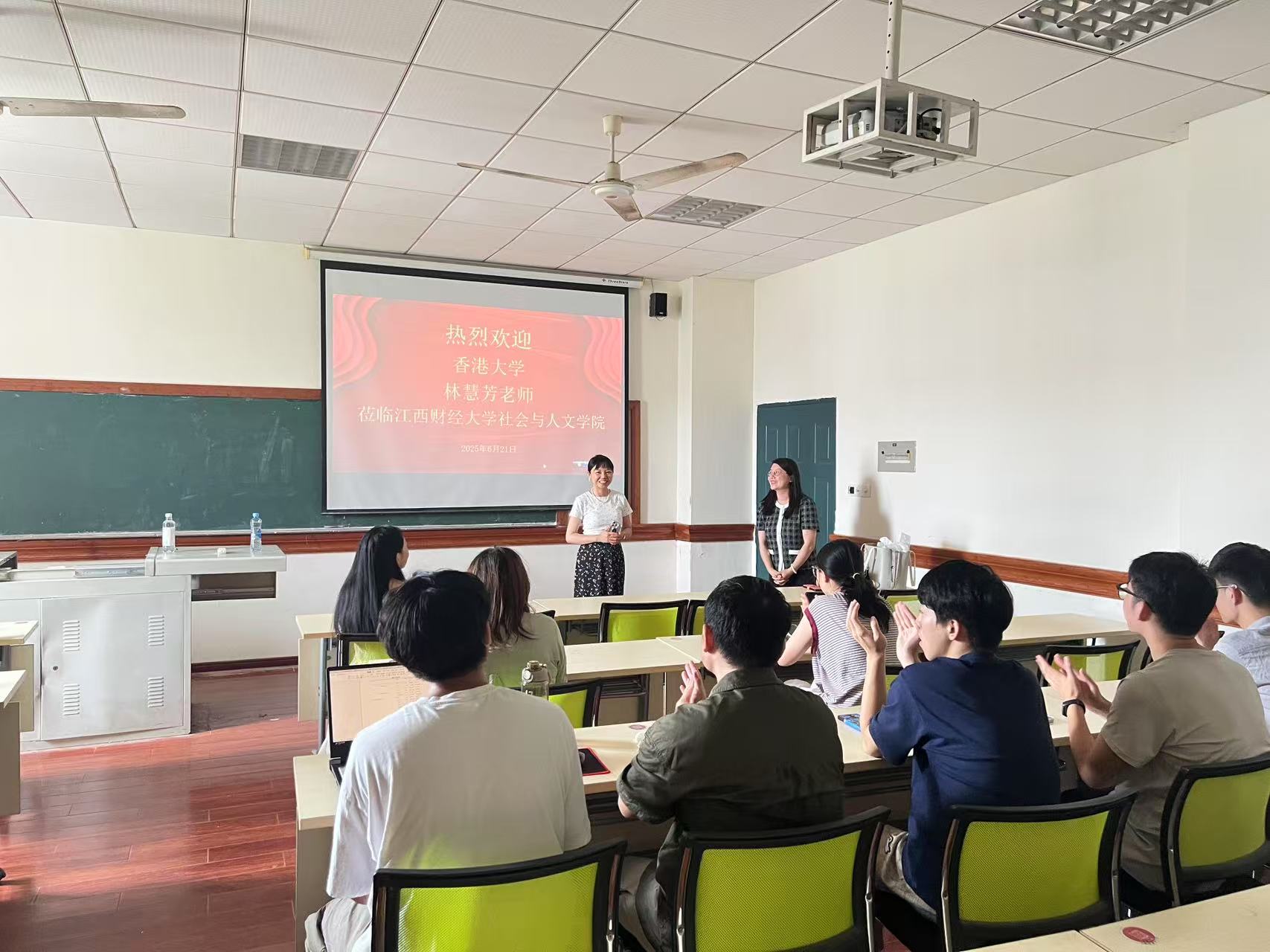
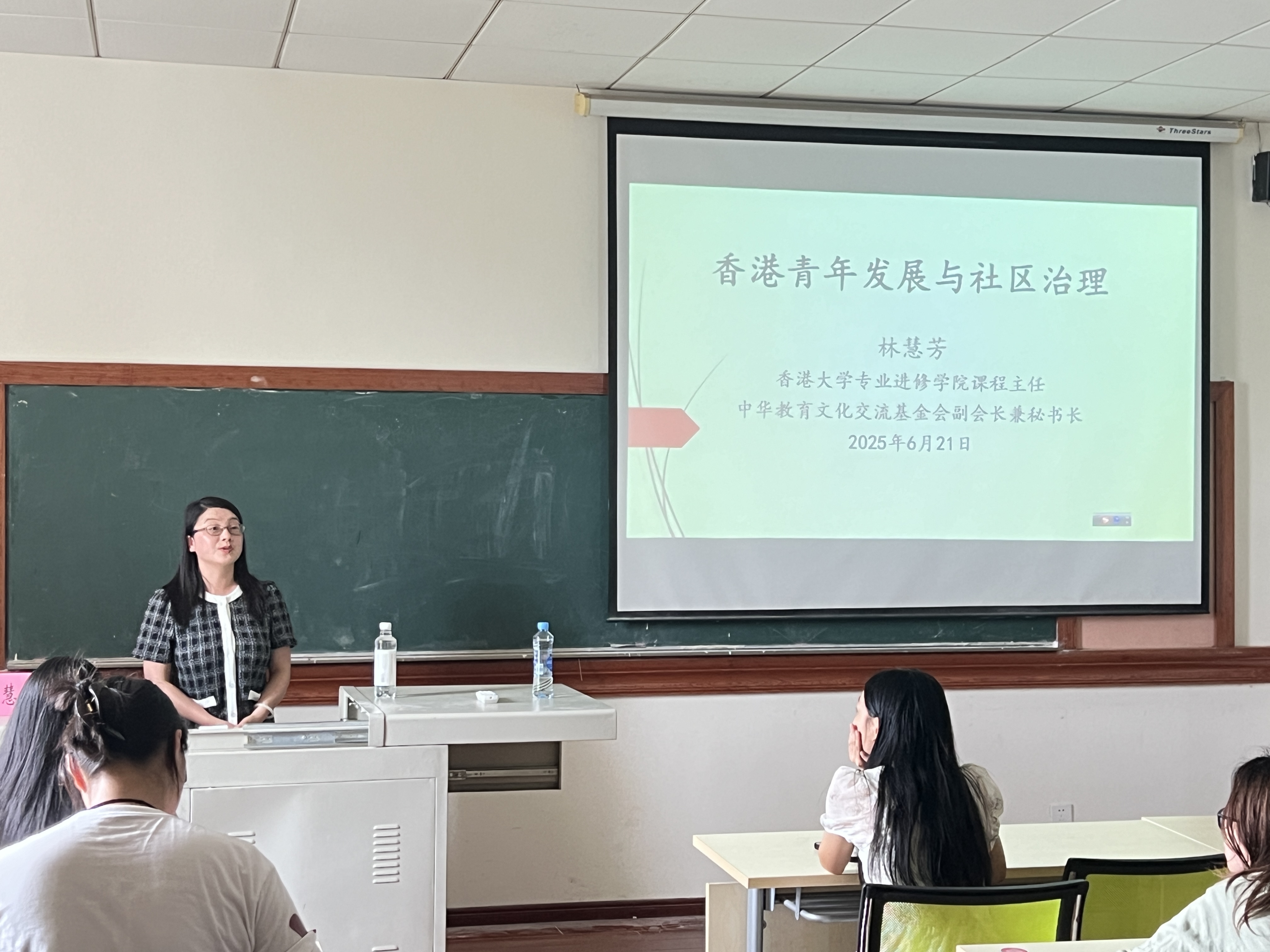
Drawing on Hong Kong’s practical experience, Ms. Lin provided an in-depth analysis of the challenges facing youth development and corresponding policy pathways. She noted that Hong Kong youth need to deepen their understanding of national history and strengthen their sense of national belonging, while simultaneously addressing pressures related to academics, employment, and limited social mobility opportunities. In response, the Hong Kong Special Administrative Region Government introduced the “Youth Development Blueprint”, which implements measures through four key dimensions: the “Exploration Chapter”: focuses on strengthening national education, career planning, and STEAM curricula; the “Hope Chapter” broadens youth development opportunities by aligning with Hong Kong’s positioning as the “Eight Centres” (including international finance and innovation & technology); the “Self-Empowerment Chapter” cultivates positive thinking and resilience; and the “Building Chapter” expands the Youth Member Self-recommendation Scheme while establishing multi-level participation platforms. Additionally, the government established the Youth Development Committee and District Care Teams to consolidate resources and build social support networks.
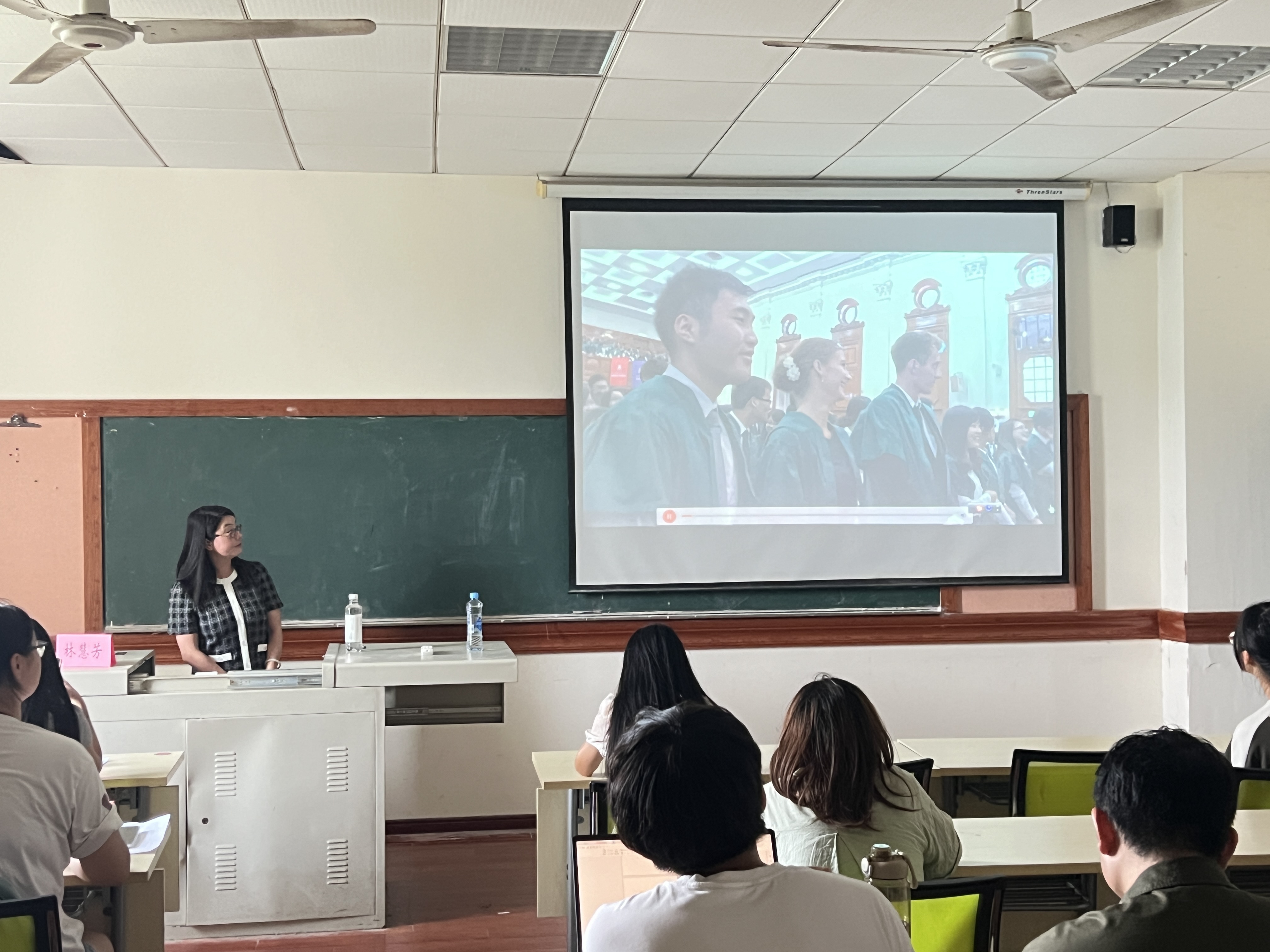
Ms. Lin pointed the critical role of social service agencies in eliminating discrimination, mobilizing grassroots communities, and fostering civic awareness. Representative cases include the “Calligraphy, Painting, and Seal Engraving Talent Training Programme” funded by the National Arts Fund, the Guangdong-Hong Kong-Macao Greater Bay Area Youth Cultural and Creative Community, and the Shenzhen-Hong Kong study exchange programs, all of which effectively promote traditional cultural heritage and regional collaborative development.
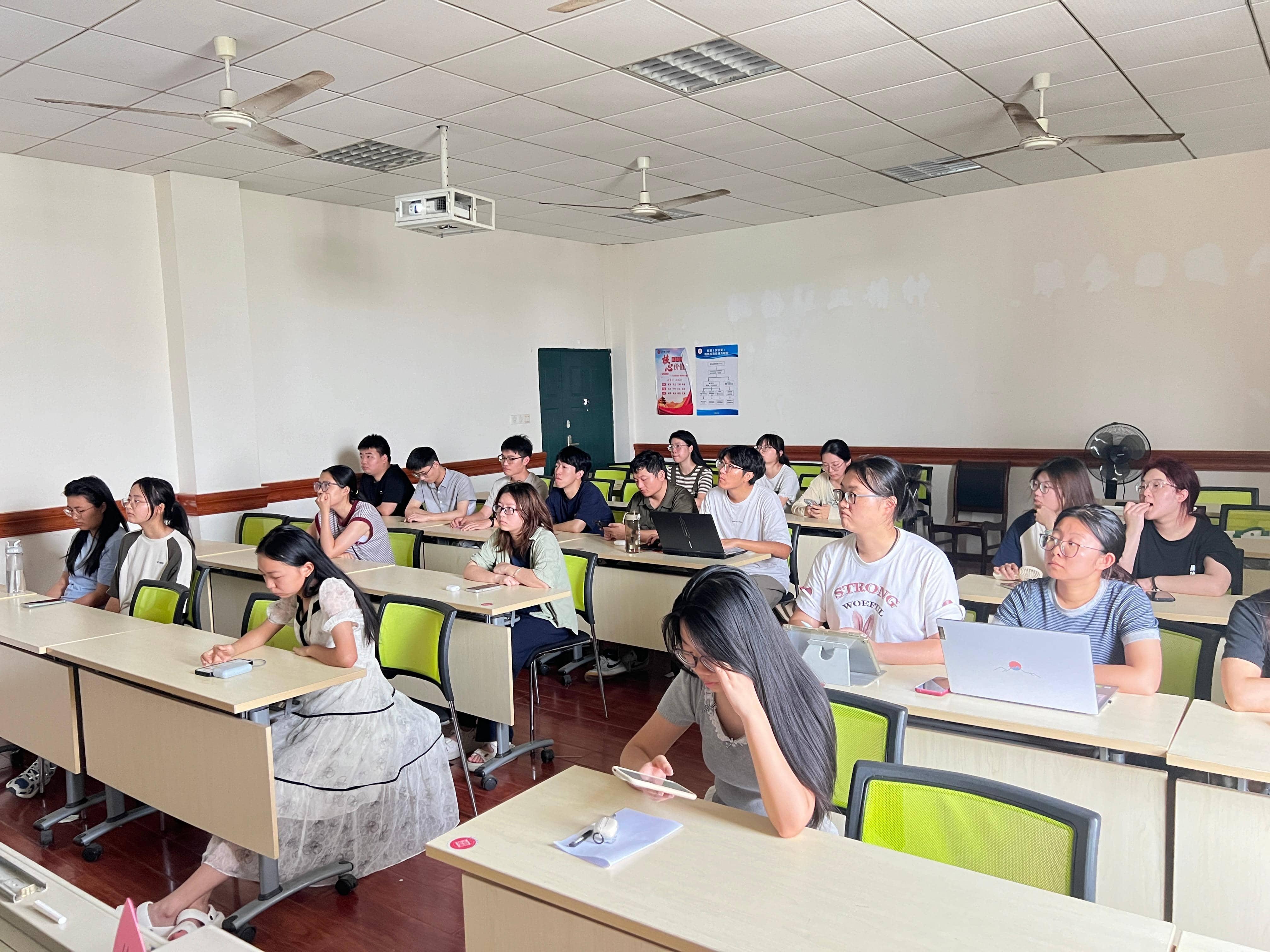
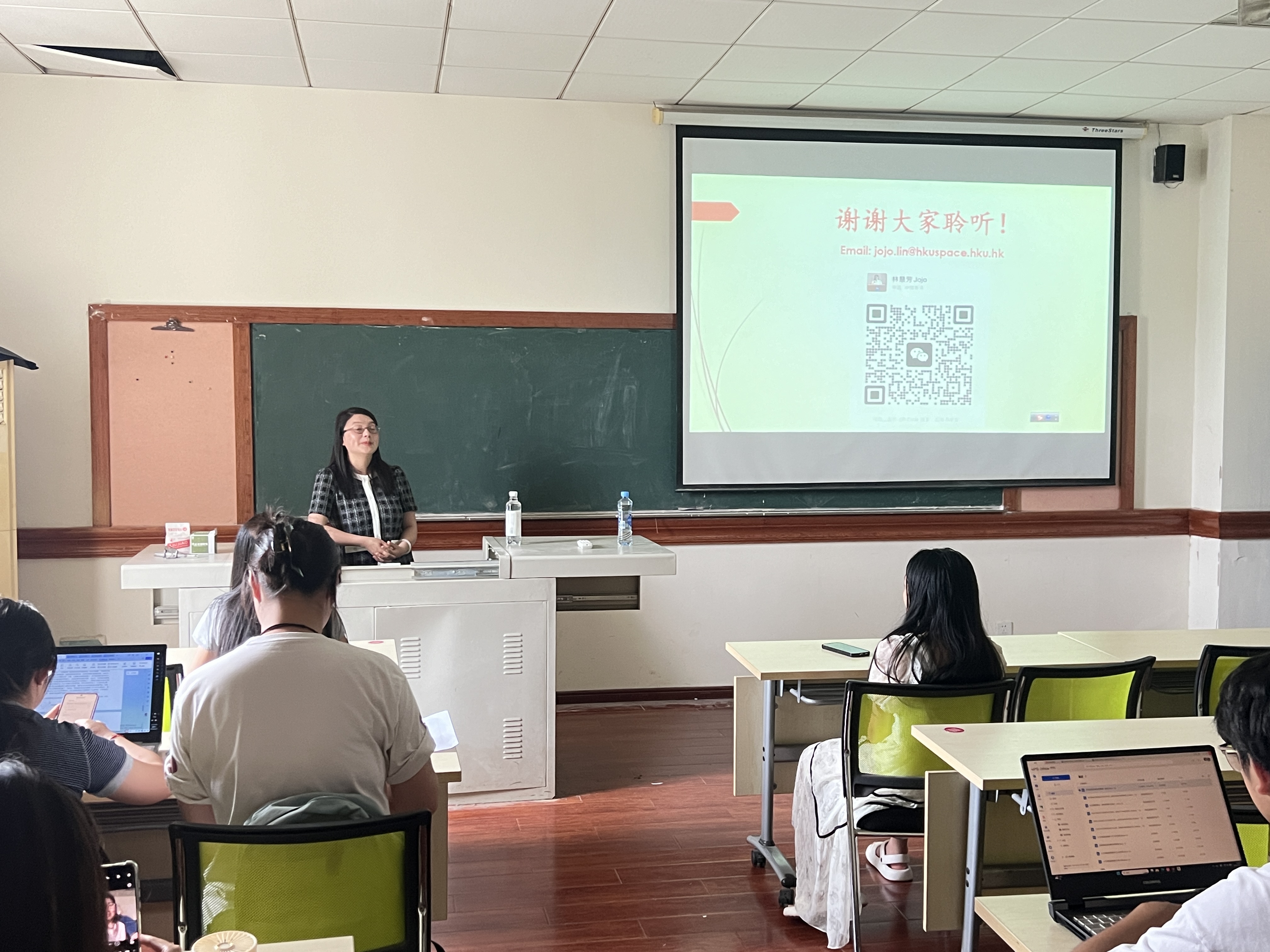
Leveraging her extensive academic and practical experience, Ms. Lin integrated policy theory with vivid case studies, stimulating profound reflection among faculty and students. Vice Dean Hong Lumin concluded that Hong Kong’s experience in youth policy design, refined community governance approaches, and cross-sector collaboration provides valuable insights for mainland research in related fields. This lecture deepened participants’ understanding of social development dynamics in the Guangdong-Hong Kong-Macao region while expanding new perspectives for integrating Sociology and Social Work disciplines with national strategic imperatives. The School will continue constructing cross-regional academic exchange platforms to closely align talent development with contemporary challenges.
(Image, Text/Hong Lumin, Li Xiang)

